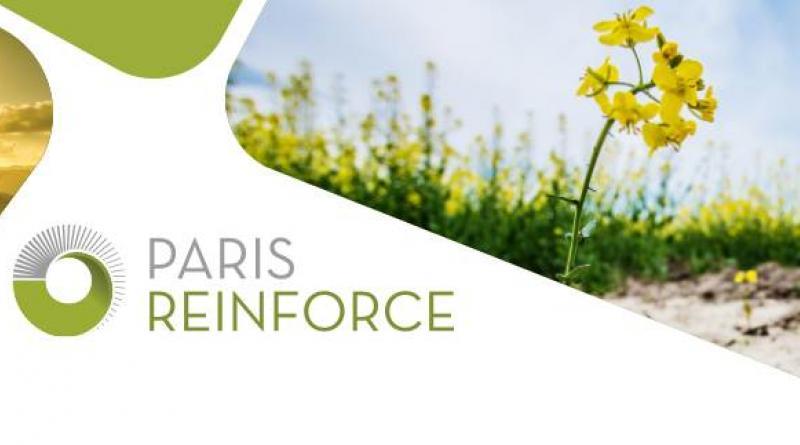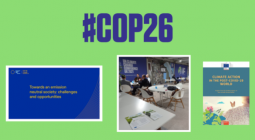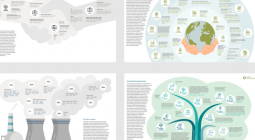PARIS REINFORCE study on warming outcomes of current policies and pledges.

Most of the integrated assessment modelling literature focuses on cost-effective pathways towards given temperature goals.
In our latest article in the journal Nature Climate Change (link), we use seven diverse integrated assessment models and project global energy CO2 emissions trajectories on the basis of near-term mitigation efforts and two assumptions on how these efforts may continue from 2030 to 2100.
Despite finding a wide range of emissions by 2050, nearly all scenarios have median warming of between 2 and 3°C in 2100, implying possible futures with markedly different climate consequences.
This is an important finding in the aftermath of COP26, during which several studies confidently estimated a warming of 2.7°C or 2.4°C in 2100, if either current policies or NDCs respectively are projected into the future. Our study instead finds that the uncertainties are much greater, projecting a 2.3-2.9°C or 2.2-2.7°C of warming, respectively.
We furthermore highlight key modelling choices inherent to projecting where emissions are headed.
First, despite our efforts to reduce undesired model response heterogeneity, by harmonising inputs across models (see here), emissions are more sensitive to the choice of integrated assessment model than to the assumed mitigation effort, highlighting the importance of model intercomparisons. Differences across models reflect diversity in baseline assumptions and impacts of near-term mitigation efforts.
Second, the common practice of using idealised economy-wide carbon prices to represent policy leads to energy systems with higher needs of carbon capture and storage. In contrast, explicitly modelling real-world policies indicates higher deployment of renewable energy technologies and electric vehicles.
The false precision to climate outcomes given during COP26 may lead countries to believe they are making good progress, when the opposite may indeed be the case. The large uncertainties indicate that current policies and policy pledges can still lead to warming outcomes of 3°C in 2100.
You may read the full article here:
Sognnaes et al. (2021). A multi-model analysis of long-term emissions and warming implications of current mitigation efforts. Nature Climate Change, in press, https://www.nature.com/articles/s41558-021-01206-3.
This study is the 50th scientific publication produced by the PARIS REINFORCE project. You may browse all papers published in the context of our project here
The PARIS REINFORCE project has received funding from the European Union’s Horizon 2020 Research and Innovation Programme under grant agreement No 820846.
PARIS REINFORCE, NTUA 9, Iroon Polytechniou str., Athens, Greece





